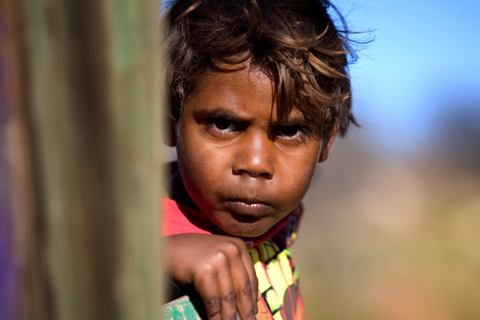Court of Appeal upholds decision to permanently stay abuse compensation claim

Joanne Willmot, a survivor of child sexual and physical abuse, brought a claim for compensation against the State of Queensland due to abuse as a minor in the late 1950s and 1960s. The State of Queensland, as the Respondent to the claim, applied to the Supreme Court of Queensland in August 2022. The Supreme Court ordered that the proceedings be permanently stayed (halted), a decision which was appealed to the Queensland Court of Appeal.
On 16 May 2023, the Queensland Court of Appeal delivered its decision in the matter (Willmot v the State of Queensland), upholding the original decision of the Supreme Court. This decision will likely have implications for survivors of child sexual abuse in Queensland claims for compensation.
Background
Joanne Willmot brought a claim for damages against the State of Queensland for child sexual and serious physical abuse she alleged she suffered while she was a ward of the state, perpetrated by:
-
Jack and Tottie Demlin, Ms Willmot’s foster carers when she was between the ages of approximately 3 – 5 years old;
-
her uncles; and
-
Maude Phillips, a supervisor at the Cherbourg Girls’ Dormitory.
Ms Willmot brought the claim against the State of Queensland in June 2019:
“on the basis of a failure by it properly to monitor and supervise her and those into whose care she was placed by the State.”
Ms Willmot’s claim did not allege that the State of Queensland was directly liable but rather that it was vicariously liable for the actions of the alleged perpetrators.
Relevantly, Mr and Mrs Demlin had passed away in the 1960s, and Ms Phillips passed away in 1982. In 2019, when Ms Willmot began her claim, many other staff of the Cherbourg Girls’ Dormitory were also deceased. One of Ms Willmot’s uncles was still alive at the time she brought the abuse claim, and indeed throughout the time the State of Queensland was investigating the claim.
Time limits for abuse compensation claims
Generally, for common law personal injury claims in Queensland, there is a time limit of three years from the date of the accident (or the date the claimant turns 18, whichever is later) for the injured person to begin their claim for compensation.
In 2017, though, this law was changed so that this time limit didn’t apply for survivors of child sexual and serious physical abuse. However, despite this time limit being removed, the court still has the ability to permanently stay the claim – which is what the State of Queensland relied on in this case.
What is a stay in legal matters?
The court has a broad ability to permanently stay a matter in its discretion. The party wishing to stay the proceedings can apply to the court and request that they exercise their discretion to do so (as the State of Queensland did in this matter). The Supreme Court, in the original jurisdiction, considered several case precedents to suggest relevant factors that the court may consider in reaching their decision of whether the stay for this matter is appropriate. These include:
-
whether it is in the interests of justice;
-
whether it is possible to have a fair trial.
It was noted, however, that the fact there has simply been a delay in bringing an abuse compensation claim is not sufficient to justify granting the permanent stay without there being something further to show the delay of time means that the trial would not be fair.
Ultimately, in this case, the Supreme Court ordered: “the proceeding is permanently stayed”.
The Court of Appeal case
The Court of Appeal decided to uphold the original decision made by the Supreme Court, permanently staying the proceedings. The reason for this boils down to, essentially, the alleged perpetrators of abuse having now passed away, and therefore the State of Queensland has not had the opportunity to get their version of events and properly investigate the allegations of abuse.
The Court of Appeal says that this means they cannot properly defend the claim, and so it is not appropriate that the claim be allowed to continue. Below, we review some of the factors the Court of Appeal considered.
The perpetrators of childhood abuse are not parties to the proceeding
One of the reasons Ms Willmot’s lawyers raised to suggest that the permanent stay should not be granted was because her case was that the State was directly liable for the abuse. In other words, they highlight that their case was not that the State was, for example, vicariously liable for the actions of others.
The Court of Appeal did not accept this argument, stating that the party being sued is not the critical issue, stating that “if damages are sought for abuse of that kind, then proof that it occurred is indispensable to success.”
Likelihood that the perpetrators of childhood abuse would refuse to give evidence
In oral submissions, the case was made for the Appellant (Ms Willmott) that even if the alleged perpetrators were available to answer the allegations, they may not provide appropriate, or in fact, any, responses.
The court agreed that this was a possibility but said that the possibility “does not warrant the assumption that such is likely to occur.” Further, the court didn’t accept there was an onus on the defendant (the State of Queensland) to show that their ability to defend the claim was materially different if the perpetrators were alive.
Availability of one alleged perpetrator of childhood abuse
Although after investigations by the Appellant, one of the perpetrators was located, the primary judge considered that it would be “insurmountably difficult” to differentiate between the impacts of the abuse by that perpetrator still living and the other instances of alleged abuse by the now deceased perpetrators. The court of appeal found that the expert evidence supported this proposition.
Given that finding, the Court of Appeal considered it irrelevant to consider whether it was open to the State to obtain more evidence from the perpetrator who was still alive or at least to gather more information about his ability to answer the allegations.
Availability of other witnesses and evidence
One piece of evidence which was considered extensively was the evidence of a witness, RS (pseudonym), who said that she had also been the subject of abuse perpetrated by Mr Demlin and that she was a witness to the abuse suffered by Ms Willmot.
On appeal, it was submitted that this evidence was independent evidence available to assist the court in deciding whether the allegations were true.
The Court of Appeal disagreed with the purported classification of this evidence as ‘independent’. RS had herself begun a claim against the State for abuse perpetrated by Mr Demlin, and the court considered the State could not get their own instructions from her about her evidence.
The Court of Appeal agreed that this would only go further to disadvantage the State’s ability to have a fair trial. The court stated that despite there being other evidence that may be relied upon by the Plaintiff (Ms Willmot), the existence of that evidence does not overcome the defendant’s inability to obtain instructions.
Decision of the Court of Appeal
The Appeal was denied, and the primary decision to permanently stay the proceedings was upheld. The Appellant (Ms Willmot) was required to pay the Respondent’s costs of the appeal.
What this means for other survivors of child sexual abuse
It is important to note that whether a matter should be permanently stayed is a decision that is to be made based on the unique facts and evidence available of each individual matter.
While the factors raised in this case are relevant considerations for claimants and lawyers pursuing a claim for damages for child sexual abuse, it will not affect or prevent all claims of that nature being pursued. It is important that you seek legal advice from lawyers experienced in childhood sexual and physical abuse compensation claims so that you can make an informed decision about your claim.
Contacting IM Lawyers
This article is of a general nature and should not be relied upon as legal advice. If you require further information, advice or assistance for your specific circumstances, please contact IM Lawyers.

